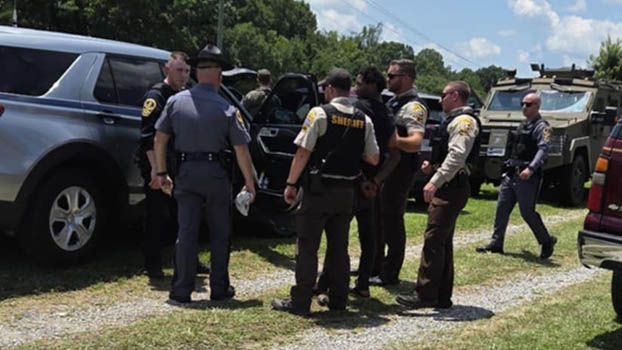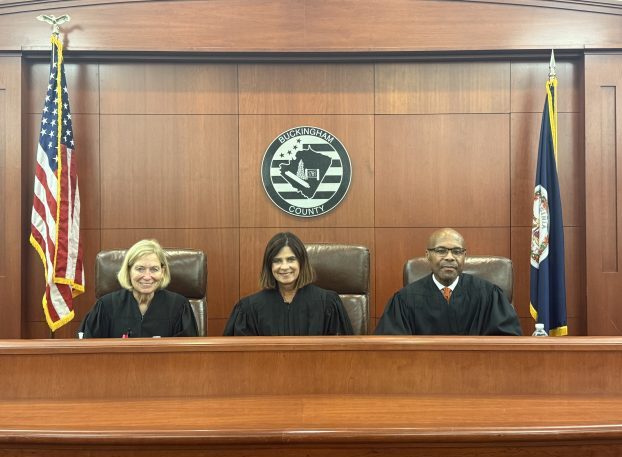Hearing set for proposed tax rate hikes
Published 6:00 am Wednesday, March 24, 2021
|
Getting your Trinity Audio player ready...
|
The Prince Edward County Board of Supervisors voted 7-0 Tuesday, March 16, to advertise proposed tax rate increases that have come about due to the recent reassessment of property values in the county.
The public hearing regarding the proposed hikes, which would be effective tax rate increases, is set for Tuesday, April 20, at 7 p.m.
The county’s advertisement states that the total assessed value of real property in Prince Edward County, excluding additional assessment due to new construction or improvements to property, exceeds last year’s total assessed value by 18.27%.
County Administrator Doug Stanley provided documentation to the board showing that this 18.27% increase means the value of all the taxable properties in Prince Edward went from $1.568 billion to $1.854 billion.
In 2020, a real property tax rate of 51 cents per $100 of assessed value for the $1.568 billion total yielded $7,997,888.09 in taxes.
In the wake of a reassessment, the Code of Virginia requires that localities equalize their tax rates, adjusting them so they produce the same tax revenue as before the reassessment.
To do this for Prince Edward, the real property tax rate must be reduced by 8 cents.
So in 2021, a real property tax rate of 43 cents per $100 of assessed value for the elevated $1.854 billion total will yield $7,997,888.09 in taxes.
If the board wishes to increase the tax rate back toward what it has been, anything above the equalized rate of 43 cents has to be advertised as a tax rate increase.
Stanley told the board he had the advertisements cite that the county is planning to leave the real property tax rate at 51 cents, which would be an effective tax rate increase of 8 cents.
“I would say, whether you’re comfortable with that or not, let’s advertise that,” he said. “You can always back it down, anywhere between there and the 44.
“When I’m trying to build the budget, that additional 8 cents, at about $150,000 a pop, ballpark, will generate about $1.2 million, and I’ve plugged it into a line for capital improvements,” he continued. “And my goal is to build the budget such that every dime of that additional amount, if we can do it, will go towards that capital improvement amount.”
Having received school budget numbers that same evening, Stanley shared a rough revenue estimate for the budget.
“We would go basically from revenue this year of $58,735,393 to $60,639,752,” he said. “That’s an increase of about 3.24%.”
He noted the overall budget is not increasing.
The board approved advertisement of three proposed tax rate increases because the equalized rate required by the Code of Virginia also impacts the EMS Tax Levy and the Poplar Hill CDA Levy.
The EMS Tax Levy has been at a rate of 1 cent. Stanley explained it would need to change to eight tenths of one penny to generate the same amount of money.
“I’ve got it proposed to advertise it again as the same one penny,” Stanley said.
He noted Poplar Hill CDA has been at $1.
“It would have to drop back to 95 cents rather than a dollar to basically come up with the same revenue,” he said. “I’ve got it advertised as staying at a dollar.”
With regard to all three tax rates, Stanley emphasized in a Monday, March 22, interview that the board could always adopt tax rates less than those that are currently being advertised, but they cannot adopt tax rates that are more than what is being advertised.
Asked what chance he thinks there is that the rates will end up being as advertised, Stanley said he has no idea.
“Again, what I’m trying to present is basically a pretty much balanced budget, with most of the proceeds there, the additional 8 cents, being put into a special capital improvements line account with the potential for that to be used for whatever comes out of the capital improvement plan that we’re in the process of starting this year,” he said.
Physical access to the April 20 public hearing on the proposed tax rates is still not permitted due to COVID-19 regulations, but members of the public can participate by calling 1 (844) 890-7777 and entering in the following access code — 390313. If the number is busy, citizens are encouraged to call again.






